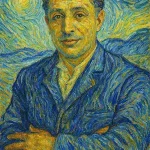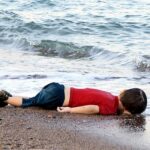
There was a moment — barely perceptible — when peninsular Spain seemed to stop breathing. A crack in the light, a whisper in the current, and then… silence. A blackout. Just another one, perhaps. But not just any.
This time, the darkness didn’t merely rob us of refrigerators, traffic lights, or glowing screens. It stripped us, above all, of excuses. Before the darkened mirror, we confronted our own fragility — creatures of the 21st century, shipwrecked and utterly dependent on a spark.
We thought ourselves invulnerable. Modern. Sovereign. Yet it takes only one erratic pulse through the wires to reveal the truth: we live enmeshed in a silent mechanism, engineered by unseen hands and governed by faceless powers. Distributors, generators, regulators… technical terms concealing a single reality — a monopoly masked as infrastructure.
And when the light falls, distortion blooms. In darkness, rumor thrives. I was told: in Andalusia, water bottles sold for seven euros. Why? A TikTok video foretelling a hydric collapse triggered by the outage. It wasn’t electricity that failed — it was trust, common sense, collective judgment.
We live in an age where information travels faster than truth. And in this vertigo of bits and emotion, Europe — our ancient, intricate Europe — sways. This week we mark Europe Day. But are we celebrating a living community or an institutional illusion? A vibrant union, or the dusty remnants of treaties and manifestos?
Europe stands alone. More needed than ever, yet more isolated than ever. She is an old lady at a party where no one dances to her tune. She is at a crossroads: challenged from within, threatened from without, torn between fear and memory.
Where are our great minds? The Einsteins, the Galileos, the Socrates, the Goethes… Those who thought with soul and debated with grace. What remains of Jean Monnet or Altiero Spinelli? Does their echo still linger in Brussels’ sterile corridors, or has it been drowned by the murmur of national interests and bureaucratic evasion?
First came COVID. It confined us, stripped us bare, forced us inward. Then the war in Ukraine. Europe once again heard the dark echo of drums it thought long silenced. And now, the blackout. These are not mere incidents — they are signs. Three sharp knocks at the door of the present. Three warnings to a Europe distracted, divided, and forgetful.
And yet, hope persists. For even in the darkest night, someone lights a candle. Someone offers it to a neighbor. And that gesture — humble, tangible, human — may spark something greater.
Robert Schuman, one of Europe’s founding fathers, saw it clearly: “Europe will not be made all at once, or according to a single plan. It will be built through concrete achievements which first create a de facto solidarity.”
The future does not belong to those who hide behind lies, fears, or severed cables. The future belongs to those who share light — however faint. To those who speak, even through doubt. To those who still believe — like Schuman, Monnet, and Spinelli — that Europe is not a glass tower, but a common fire




